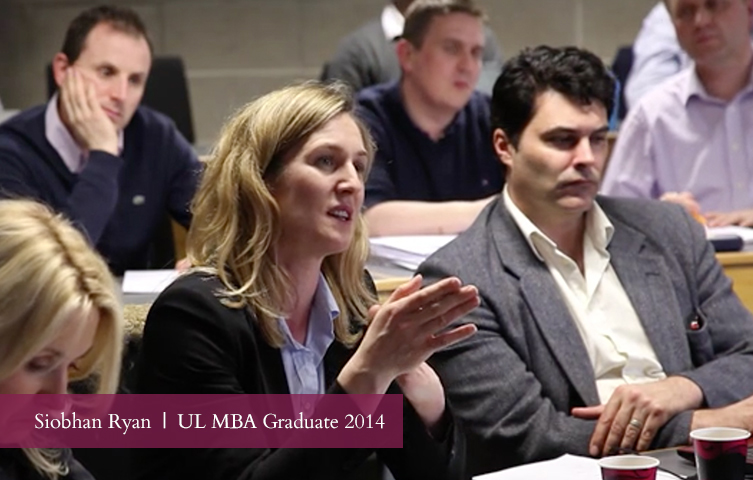
The long held belief that MBAs are for powerful men in suits is being turned on its head. In recent years, there has been an unprecedented number of women graduating with an MBA in Ireland. The University of Limerick reported that in 2015, 39% of their corporate MBA programme students were female, a significant increase on previous years.
Dr. Michele O’Dwyer, Associate Dean and MBA Course Director at the University of Limerick, shares her insights on why this number is only expected to rise.
An MBA programme can certainly help career progression. In fact, 85% of female MBA graduates credited their MBAs for their career advancement in a recent report by the Forté Foundation. This is especially true in typically male dominated fields, such as engineering, banking and technology. Siobhan Ryan, a graduate of the UL MBA attributes her progression to Sales Director for a multinational conglomerate to her MBA, claiming:
"I needed the external validation of an MBA. To put a stamp on my resume that I was serious about and committed to my career."
Many people invest their time and money into studying an MBA programme with the aim of achieving career progression. However, a less publicised reason for enrolling is to gain more confidence in the working world. This is especially true for women working in male dominated industries, or for those returning to work after a career break. For example, Siobhan worked in the software sector for 25 years before taking time out to raise her two children. She enrolled in an MBA programme before re-entering the workplace to boost her self-confidence, and reassure herself that her skill set was still relevant.
"Professionally, I feel the MBA was a big contributing factor to me getting my new position as Director of Sales. It gave me a lot of confidence going into interview situations to get the next job."
The Irish Times recently reported the pay gap between men and women in Ireland is still a considerable 14.4%. While this is not quite as high as the 30% pay gap observed Europe, it’s still a significant difference. However, women that add to their qualifications are more likely to reach senior management positions, and experience the pay rise that goes hand in hand with this. According to the Forté Foundation, women with MBAs saw their salaries rise by 55-65% within 5 years of graduating.
A major challenge with undertaking an MBA programme is the time commitment. Balancing work, kids and general family life is demanding, which is why UL structured their MBA programme to allow for greater flexibility. We believe MBA programmes need to bend with the realities of work and family life. Instead of being rigid, they need to facilitate and support the students.
That’s why there are no evening classes in UL; instead students come to Limerick for 3-day blocks, eight times a year. This executive MBA structure allows students to schedule dedicated time off in advance and really focus on their studies during the lecture blocks.
Our hope is that more and more women will see what an MBA programme can do for them. What’s more, we expect more MBA programmes will recognise the benefits of flexing and bending to the real needs of their students.